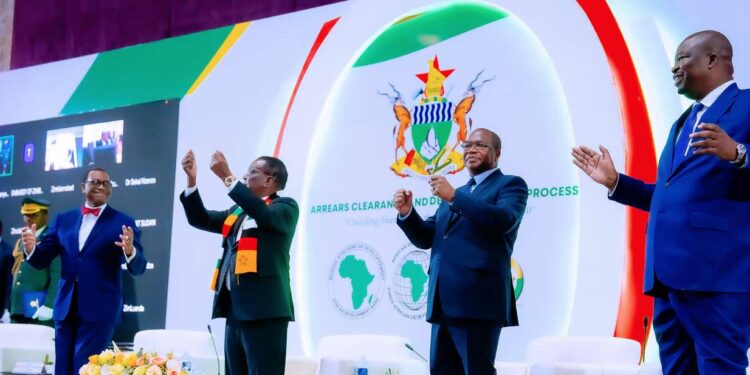Zimbabwe is poised for a transformative shift in its economic trajectory following the announcement of an International Monetary Fund (IMF)-monitored program set to begin in January 2025. This program, part of structural reforms to address its $21 billion public debt, aims to settle arrears and stabilize the country’s economy. During the 6th Structured Dialogue in Harare, President Emmerson Mnangagwa reaffirmed his government’s commitment to an inclusive approach. “My administration prioritizes the protection of the most vulnerable. No citizen should be left behind in this process of economic recovery”, Mnangagwa assured.
Africa: new climate opportunities strengthen African communities
Dr. Akinwumi Adesina, President of the African Development Bank (AfDB), hailed the IMF program as a “historic milestone”. “We have made more progress in these two years than in the past two decades. This structured dialogue is the key to unlocking Zimbabwe’s potential”, Adesina stated. The AfDB has allocated $4.2 million to support the structured dialogue and finance technical advisors to help develop a comprehensive roadmap for debt resolution. Adesina also announced that the Bank is considering extending further financial support to clear arrears, reinforcing its commitment to the country.
Among the reforms presented are the introduction of a new local currency, a transparent foreign exchange market, and stricter anti-corruption laws. These measures aim to bolster investor confidence and ensure economic stability. Additionally, Zimbabwe has advanced in land tenure regularization by issuing financeable and transferable documents, accompanied by a $35 million compensation package for farmers affected by the 1990s land reform program. “These reforms are essential to rebuilding trust and revitalizing our agricultural economy”, Mnangagwa affirmed.
The impact of these efforts transcends national boundaries. Adesina highlighted Zimbabwe’s strategic position in Southern Africa and its potential as a key supplier of critical minerals for the global energy transition. “Zimbabwe is crucial to the global economy. Sanctions have not only harmed its people but also hindered its contribution to regional and global development”, Adesina emphasized.
Former Mozambican President Joaquim Chissano, facilitator of the dialogue, urged the international community to increase financial and technical support. “Progress is evident, but success requires global collaboration. It’s time to give Zimbabwe a fair chance to thrive”, Chissano expressed.
With a solid reform plan and backing from key international allies, Zimbabwe is charting a path toward inclusive economic recovery. This effort will not only benefit the country but also enhance its role as a driver of development in Africa. As Mnangagwa concluded: “Zimbabwe’s future will not be defined by its past but by the commitment of its people and the support of its partners”.









